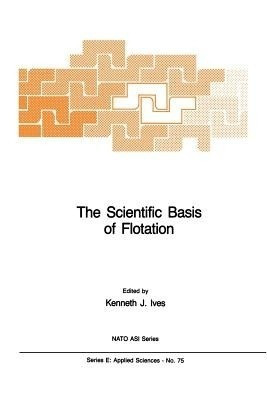The Scientific Basis of Flotation(English, Paperback, unknown)
Quick Overview
Product Price Comparison
K.J.Ives Professor of Public Health Engineering University College London Industrial application of the use of bubbles to float fine particles in water began before the beginning of this century, in the field of mineral processing. Such bubble flotation was applied very little outside mineral processing, until about 1960 when the dissolved air process, which has already had some success in the pulp and paper industry, was applied to water and wastewater treatment. The subsequent two decades saw not only a growth development for water and wastewater treatment, but also a growing cognisance of the similarities that existed with mineral processing flotation. Therefore the time seemed ripe in 1982 for a joint meeting between experts in these two major fields of flotation to put together the Scientific Basis of Flotation in the form of a NATO Advanced Study Institute. Attended by about 60 specialists, mainly post doctoral, from 17 countries, this Study Institute in residence for two weeks in Christ's College, Cambridge (UK) heard presentations from several international experts, principally the 8 co-authors of this book. The integration of the various scientific disciplines of physics, physical chemistry, colloid science, hydrodynamics and process engineering showed where the common basiS, and occasional important differences, of flotation could be applied to mineral processing, water and wastewater treatment, and indeed some other process industries (for example: pharmaceuticals, and food manufacture).


